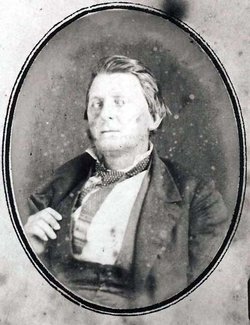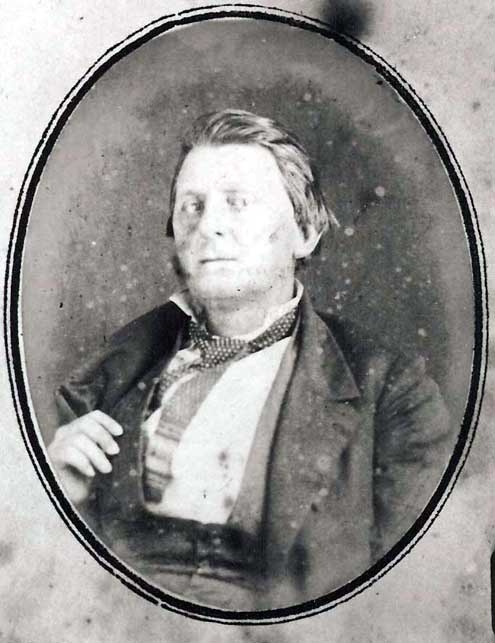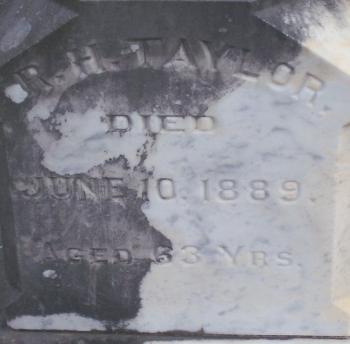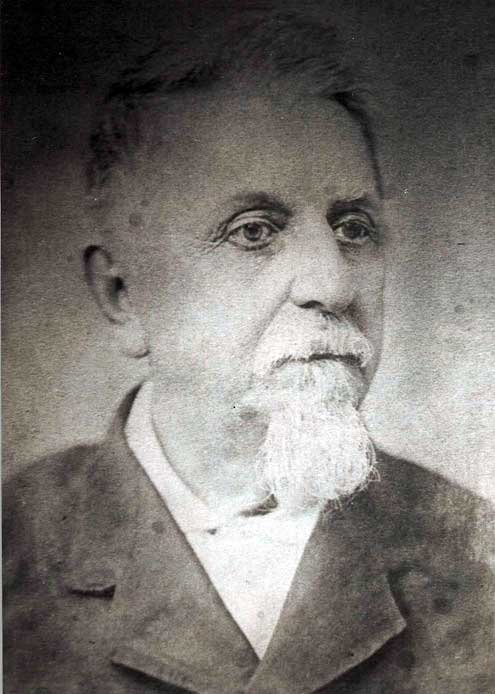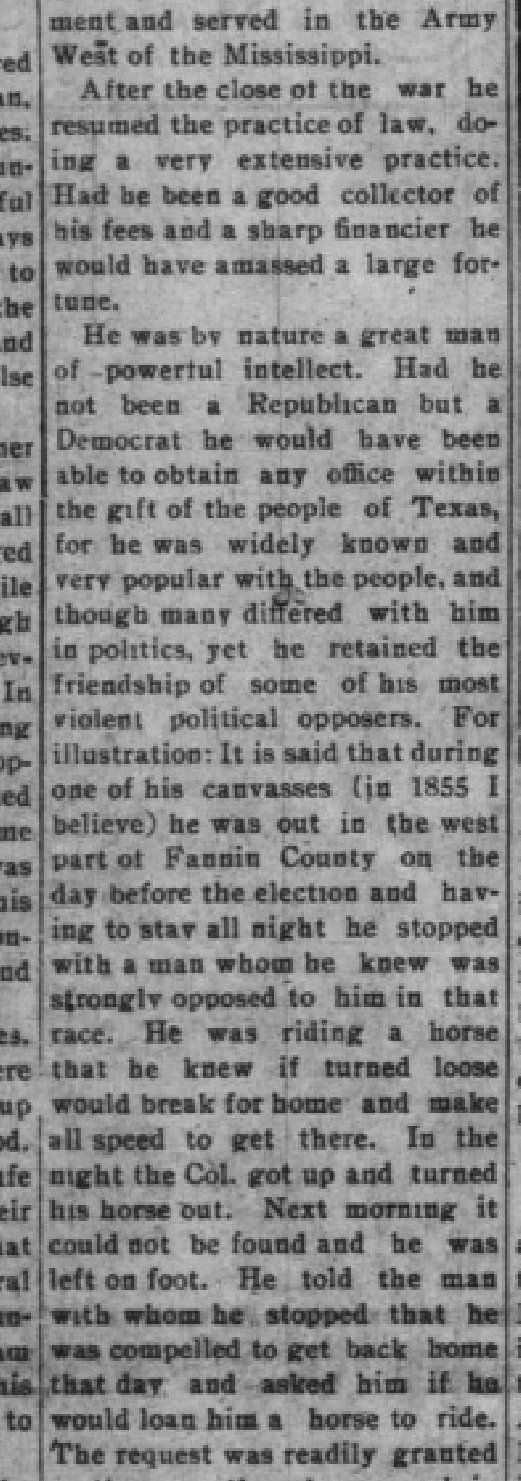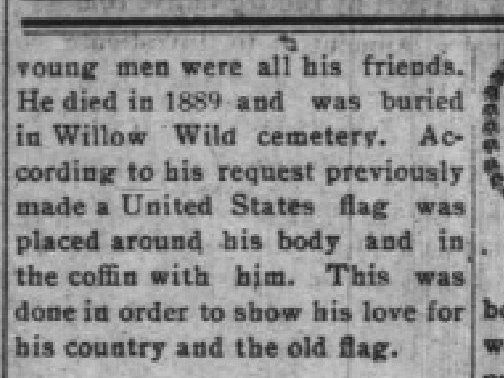TAYLOR, ROBERT H. (1825–1889). Robert H. Taylor, lawyer, soldier, and political leader, was born on July 5, 1825, in Columbia, South Carolina, the son of native South Carolinians. He studied law and was admitted to the South Carolina bar in 1843. Early in 1844 he moved to Bonham, Texas. In 1845 he was elected justice of the peace. Taylor raised a company of Fannin County men to fight in the Mexican War in 1846. He was elected captain and served as commander of Company B. in John C. Hays's First Regiment of Texas volunteers. Future governor James W. Throckmorton was a private in Taylor's company. After the war Taylor returned to Bonham, where he practiced law and farmed. In 1851 he was elected to the Texas House of Representatives to represent Fannin, Grayson, and Cooke counties in the Fourth Legislature. The voters returned him to the house in 1853, and in 1855 he was elected to the Texas Senate. In January 1856 the state convention of the American (Know-Nothing) party chose Taylor to serve as a presidential elector in Texas. He won another term in the state Senate in 1857 and was chosen to the lower house for the Eighth Legislature in 1859. On January 2, 1860, during the first session of this legislature, Governor Sam Houston appointed Taylor and the third José Ángel Navarro commissioners to study and report on the disturbances wrought by Juan N. Cortina on the Rio Grande. Although he was a wealthy man and a slaveholder, Taylor, like Sam Houston, supported the Union during the secession crisis of 1860–61. On March 20, 1860, he put Houston's name forward for the presidency at the Austin meeting of the "National Democracy" in Texas. Later that year Taylor became an active supporter of the new Constitutional Union party. As a member of the Eighth Legislature in January 1861, Taylor opposed recognition of the Secession Convention and signed the antisecessionist "Address to the People of Texas." Once Texas seceded, however, Taylor remained loyal to the South. He helped raise three companies of cavalry during the Civil War and served as colonel of the Twenty-second Texas Cavalry.
Taylor returned to public life shortly after the end of the war, when, in recognition of his prewar unionism, provisional governor Andrew J. Hamilton appointed him chief justice of Fannin County. He served in that capacity from August until November 1865 and then became state comptroller, a position he held until mid-1866. Taylor was elected to the Constitutional Convention of 1866 and sided with the Unionist minority. He was one of only three men calling for Negro suffrage. As Reconstruction advanced, Taylor became an active member of the new Republican party. Governor Edmund J. Davis appointed him judge of the Fourteenth Judicial District in 1870, but for unknown reasons he did not qualify for the position. Three years later, when Davis sought to make him judge of the Eighth District, the state Senate, then controlled by Democrats, refused to confirm his nomination. Taylor served as president of the 1872 Republican state convention, which supported the renomination of President Ulysses S. Grant. The Republican party made Taylor its candidate for lieutenant governor of Texas in 1873, but he and Governor Davis went down to defeat as the Democrats "redeemed" Texas. In 1879 personal popularity enabled Taylor to overcome his party affiliation and win a seat in the Texas House of Representatives, the last public office that he held. He was a member of the Republican state convention in 1882 and served his party as a presidential elector in the election of 1884.
Taylor was married three times. Between 1844 and 1846 he married Eppsey (Eppsy) Ann Hardaway, who died in childbirth with their third child. She appears in the 1850 Census, born in Georgia and 20 years of age. On October 2, 1854, he married a young Texas girl named Tennessee Gilbert, and they had four children. In the 1860 Census, she was aged 22 and was born in Texas. On September 10, 1867 he married Delilah Taylor, from Arkansas, and they had at least three more children. Taylor died at his home near Bonham on May 10, 1889. He is buried beside his first wife in Willow Wild Cemetery.
The Dallas Morning News Page/Column: 5/2
11 May 1889
Col. R. H. Taylor
Bonham, Tex., May 10.--Col. R. H. Taylor, one of the most noted republican leaders in the southwest, died this evening at his home, four miles southwest of town. Notwithstanding his radical republicanism Col. Taylor was one of the most popular men among the people.
_____________
Married three times, he was the father of 12 children. He was born in Columbia, South Carolina. In 1837, at age 12 he emigrated to Georgia, where he was educated by Rev. C.P. Beman of Midway and by Rev. Otis Smith of La Grange. He read law in the office of Judge Hiram Walker, Greenville, Georgia. In 1843 at age 18, he was admitted to the bar by special act of the legislature. He married Epsey A. Hardway, daughter of Thos. E. Hardway, a Georgia merchant. In 1844, age 19, he emigrated to Texas, settling in Bonham, Fannin County, where in 1845, at age 20, he became a justice of the peace. The History of Fannin County, Texas, 1885, by W.A. Carter, Bonham, reads in part: "...The old gentleman lives a short distance from Bonham on a fine farm, surrounded by the younger members of his family and all the comforts and conveniences of home life... Long may he live to enjoy the blessings of a country his patriotism and bravery have helped to build up for future generation!"
_______
Fannin Guard
17 May 1889
Col. Robert H. Taylor
Col. Taylor died at his home near Bonham last Friday about five o'clock in the afternoon. It is with much regret we make this announcement, notwithstanding the fact that since the war he has been one of the strongest and effective enemies of Democracy in the State of Texas. But he was a man of many admirable traits of character, and, according to his convictions, was true to his country and to his people.
He was a veteran of the war between this country and Mexico, in which he served as Colonel, making warm friends for himself of men yet living all over the State who will grieve to hear of his death. By profession he was a lawyer, standing high among the legal fraternity, though of recent years gradually and voluntarily relinquishing his practice. His death was caused by attack of jaundice leading to other complications.
He is reported to have died with the last request that his body be buried wrapped in the American flag; an expression of true patriotism that should linger in the heart and find and echo on the lips of every inhabitant of our land.
TAYLOR, ROBERT H. (1825–1889). Robert H. Taylor, lawyer, soldier, and political leader, was born on July 5, 1825, in Columbia, South Carolina, the son of native South Carolinians. He studied law and was admitted to the South Carolina bar in 1843. Early in 1844 he moved to Bonham, Texas. In 1845 he was elected justice of the peace. Taylor raised a company of Fannin County men to fight in the Mexican War in 1846. He was elected captain and served as commander of Company B. in John C. Hays's First Regiment of Texas volunteers. Future governor James W. Throckmorton was a private in Taylor's company. After the war Taylor returned to Bonham, where he practiced law and farmed. In 1851 he was elected to the Texas House of Representatives to represent Fannin, Grayson, and Cooke counties in the Fourth Legislature. The voters returned him to the house in 1853, and in 1855 he was elected to the Texas Senate. In January 1856 the state convention of the American (Know-Nothing) party chose Taylor to serve as a presidential elector in Texas. He won another term in the state Senate in 1857 and was chosen to the lower house for the Eighth Legislature in 1859. On January 2, 1860, during the first session of this legislature, Governor Sam Houston appointed Taylor and the third José Ángel Navarro commissioners to study and report on the disturbances wrought by Juan N. Cortina on the Rio Grande. Although he was a wealthy man and a slaveholder, Taylor, like Sam Houston, supported the Union during the secession crisis of 1860–61. On March 20, 1860, he put Houston's name forward for the presidency at the Austin meeting of the "National Democracy" in Texas. Later that year Taylor became an active supporter of the new Constitutional Union party. As a member of the Eighth Legislature in January 1861, Taylor opposed recognition of the Secession Convention and signed the antisecessionist "Address to the People of Texas." Once Texas seceded, however, Taylor remained loyal to the South. He helped raise three companies of cavalry during the Civil War and served as colonel of the Twenty-second Texas Cavalry.
Taylor returned to public life shortly after the end of the war, when, in recognition of his prewar unionism, provisional governor Andrew J. Hamilton appointed him chief justice of Fannin County. He served in that capacity from August until November 1865 and then became state comptroller, a position he held until mid-1866. Taylor was elected to the Constitutional Convention of 1866 and sided with the Unionist minority. He was one of only three men calling for Negro suffrage. As Reconstruction advanced, Taylor became an active member of the new Republican party. Governor Edmund J. Davis appointed him judge of the Fourteenth Judicial District in 1870, but for unknown reasons he did not qualify for the position. Three years later, when Davis sought to make him judge of the Eighth District, the state Senate, then controlled by Democrats, refused to confirm his nomination. Taylor served as president of the 1872 Republican state convention, which supported the renomination of President Ulysses S. Grant. The Republican party made Taylor its candidate for lieutenant governor of Texas in 1873, but he and Governor Davis went down to defeat as the Democrats "redeemed" Texas. In 1879 personal popularity enabled Taylor to overcome his party affiliation and win a seat in the Texas House of Representatives, the last public office that he held. He was a member of the Republican state convention in 1882 and served his party as a presidential elector in the election of 1884.
Taylor was married three times. Between 1844 and 1846 he married Eppsey (Eppsy) Ann Hardaway, who died in childbirth with their third child. She appears in the 1850 Census, born in Georgia and 20 years of age. On October 2, 1854, he married a young Texas girl named Tennessee Gilbert, and they had four children. In the 1860 Census, she was aged 22 and was born in Texas. On September 10, 1867 he married Delilah Taylor, from Arkansas, and they had at least three more children. Taylor died at his home near Bonham on May 10, 1889. He is buried beside his first wife in Willow Wild Cemetery.
The Dallas Morning News Page/Column: 5/2
11 May 1889
Col. R. H. Taylor
Bonham, Tex., May 10.--Col. R. H. Taylor, one of the most noted republican leaders in the southwest, died this evening at his home, four miles southwest of town. Notwithstanding his radical republicanism Col. Taylor was one of the most popular men among the people.
_____________
Married three times, he was the father of 12 children. He was born in Columbia, South Carolina. In 1837, at age 12 he emigrated to Georgia, where he was educated by Rev. C.P. Beman of Midway and by Rev. Otis Smith of La Grange. He read law in the office of Judge Hiram Walker, Greenville, Georgia. In 1843 at age 18, he was admitted to the bar by special act of the legislature. He married Epsey A. Hardway, daughter of Thos. E. Hardway, a Georgia merchant. In 1844, age 19, he emigrated to Texas, settling in Bonham, Fannin County, where in 1845, at age 20, he became a justice of the peace. The History of Fannin County, Texas, 1885, by W.A. Carter, Bonham, reads in part: "...The old gentleman lives a short distance from Bonham on a fine farm, surrounded by the younger members of his family and all the comforts and conveniences of home life... Long may he live to enjoy the blessings of a country his patriotism and bravery have helped to build up for future generation!"
_______
Fannin Guard
17 May 1889
Col. Robert H. Taylor
Col. Taylor died at his home near Bonham last Friday about five o'clock in the afternoon. It is with much regret we make this announcement, notwithstanding the fact that since the war he has been one of the strongest and effective enemies of Democracy in the State of Texas. But he was a man of many admirable traits of character, and, according to his convictions, was true to his country and to his people.
He was a veteran of the war between this country and Mexico, in which he served as Colonel, making warm friends for himself of men yet living all over the State who will grieve to hear of his death. By profession he was a lawyer, standing high among the legal fraternity, though of recent years gradually and voluntarily relinquishing his practice. His death was caused by attack of jaundice leading to other complications.
He is reported to have died with the last request that his body be buried wrapped in the American flag; an expression of true patriotism that should linger in the heart and find and echo on the lips of every inhabitant of our land.
Inscription
My Desire is to be Wrapped in the American Flag.
Family Members
Advertisement
Explore more
Sponsored by Ancestry
Advertisement
